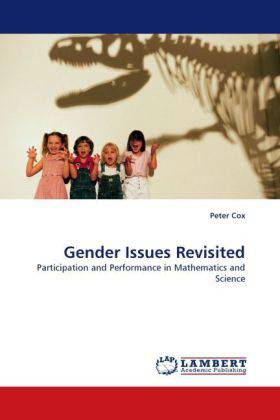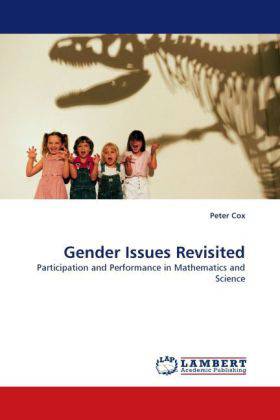
Je cadeautjes zeker op tijd in huis hebben voor de feestdagen? Kom langs in onze winkels en vind het perfecte geschenk!
- Afhalen na 1 uur in een winkel met voorraad
- Gratis thuislevering in België vanaf € 30
- Ruim aanbod met 7 miljoen producten
Je cadeautjes zeker op tijd in huis hebben voor de feestdagen? Kom langs in onze winkels en vind het perfecte geschenk!
- Afhalen na 1 uur in een winkel met voorraad
- Gratis thuislevering in België vanaf € 30
- Ruim aanbod met 7 miljoen producten
Zoeken
Gender Issues Revisited
Participation and Performance in Mathematics and Science
Peter Cox
Paperback | Engels
€ 104,45
+ 208 punten
Omschrijving
The What about the boys? debate has emerged in Australia, the United Kingdom and the USA in which boys are described as the new disadvantaged . There are numerous data that have pointed to the poorer performance and attitudes of males when compared with females in schools,. However, the gender issue is very complex and there has been a call for nuanced and careful readings of data. This book provides a more equitable comparison of the gender and socio-economic differences in participation, subject selection and performance in grade 12 subjects. One of Australia's largest senior secondary schools was the main setting for the study. This project comprised three stages: a quantitative investigation involving 2500 students; an anonymous survey of 800 students; and focus group interviews with 28 students and teachers. School teachers, teacher educators, and educational researchers will find that the fresh and detailed analysis of the gender and socio- economic data will shed new light on the gender debate and challenge us all to create a more inclusive curriculum and school system.
Specificaties
Betrokkenen
- Auteur(s):
- Uitgeverij:
Inhoud
- Aantal bladzijden:
- 372
- Taal:
- Engels
Eigenschappen
- Productcode (EAN):
- 9783843381871
- Verschijningsdatum:
- 14/12/2010
- Uitvoering:
- Paperback
- Afmetingen:
- 228 mm x 152 mm
- Gewicht:
- 580 g

Alleen bij Standaard Boekhandel
+ 208 punten op je klantenkaart van Standaard Boekhandel
Beoordelingen
We publiceren alleen reviews die voldoen aan de voorwaarden voor reviews. Bekijk onze voorwaarden voor reviews.









